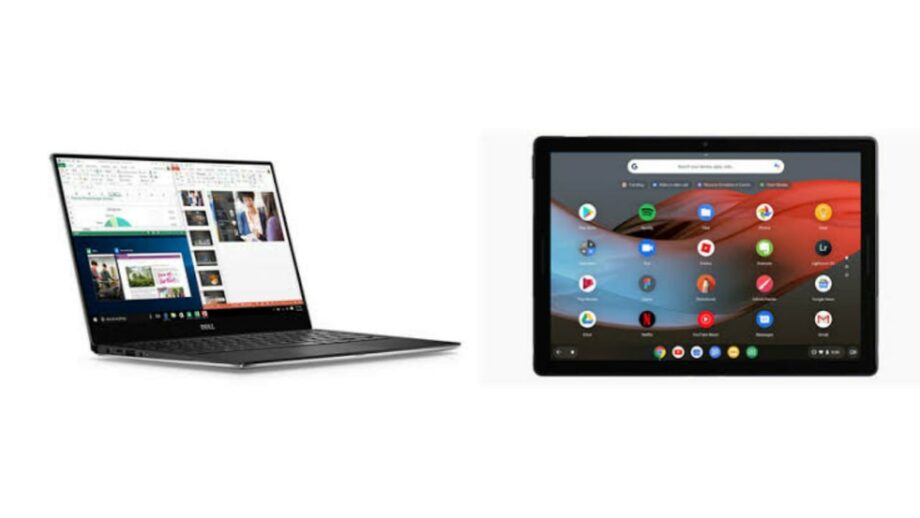Are you thinking about getting a new computer but can’t decide between a tablet and a laptop? Learn about the advantages and disadvantages of each, as well as how 2-in-1 laptops stack up.
Here are some pros and cons of a laptop
Because laptops, also known as notebook computers, are large enough to include internal fans, which efficiently cool the processors, they have higher-performing processors. As a result, laptops have higher processing power than tablets and are capable of running numerous apps at the same time. Laptops are very efficient and multitasking friendly because of this. Laptops offer more storage space than tablets since they employ traditional hard drives. Most laptops today have hard drive capacities of up to 1 Terabyte (TB) or 1000 Gigabytes (GB), so you’ll have plenty of space for all your files, photos, and videos. Although recent advancements in tablet technology make it possible to increase storage capacity, doing so is more complex and inconvenient than doing it on a laptop. Connecting laptops to external hard drives to store additional material and files is a simple process.
Laptops are heavier than tablets because of their thicker superstructures and larger batteries. The majority of computers are at least three pounds in weight. Laptop screens are also larger than most tablet screens, ranging from 12 to 17 inches. Laptops are more difficult to move due to their weight and screen size and may need the usage of bigger work bags or backpacks to accommodate them. Because of their higher quality hardware, laptops are more expensive. While some low-cost, basic laptops are now available, laptops with the most functionality and versatility can set you back significantly more. Laptops of the best quality can cost up to $3000 or more. As a result, some may view a laptop to be a more involved purchase than a tablet.
Here are some pros and cons of tablet
Tablet PCs are incredibly portable, being thin and light enough to fit in purses and pockets. Some tablets are under a pound in weight. As a result, they are an excellent alternative for frequent travelers. Tablets have a longer battery life due to their smaller screens and less technology. Tablet batteries can also be more reliable. Some tablet devices have up to 14 hours of battery life. Because tablets offer fewer functions than laptops, they are less expensive. A working tablet can be found for less than $200. More advanced tablets can still be reasonably priced and provide more capability than more basic versions. The huge screens on tablets make it simple to consume video, e-books, and other sorts of material. Tablets provide a pleasant viewing experience due to their huge touchscreens and are ideal for catching up on your favorite TV episodes, movies, or books while on the road.
Solid-state drives (SSDs) are used to store data on tablets. Most tablets are less bulky as a result of this, but they also have less storage space. Tablets can now be connected to external hard drives, although expanding the storage capacity of this type of device is typically more difficult than with laptops. Touchscreen keyboards are only available on tablets. If you expect to do a lot of typing on your tablet, you’ll need to invest in an external keyboard with Bluetooth connectivity. An external keyboard is usually not as comfortable or functional as a laptop’s built-in keyboard, and connecting the keyboard to the tablet might be difficult.
Source- cdw.com
Keep reading IWMBuzz.com for more such updates on your favorite celebs.


